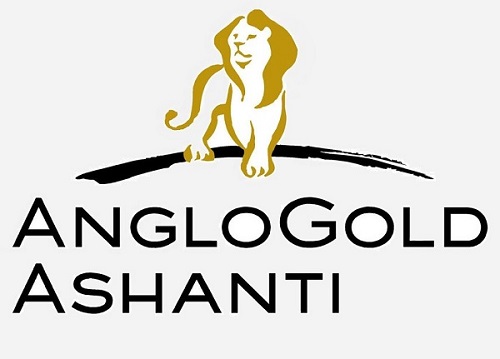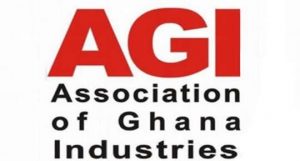AngloGold Ashanti has announced that its underground ore mining at the Obuasi Gold Mine in Ghana is expected to resume by mid-October.
For the remainder of this year, underground ore will be used only to replenish the Run-of-Mine stockpile, the miner announced in a statement.
Gold production from underground ore sources is, therefore, expected to re-commence only in January 2022.
The safe ramp-up to the full mining rate of 4,000 tonnes per day is expected to be achieved by the end of the first half of 2022.
Underground mining activities at Obuasi were voluntarily suspended following a sill pillar failure on 18 May 2021, which resulted in the tragic loss of one AngloGold miner.
“A detailed review of the mining and ground management plans has been conducted by a cross-functional internal team and supported by independent third-party, Australian Mining Consultants (AMC)”, the statement said.
Following this review, AngloGold said “a comprehensive series of protocols has been introduced to supplement existing operating procedures”.
AngloGold said the full suite of procedures ahead of the mining front now include the existing systematic probe drilling procedure, extensive use of technology, including Cavity Monitoring Systems and Cavity Auto Laser System, augmented with visual inspections to confirm the position and status of backfill in previously mined areas.
The new paste-fill plant has been commissioned and its reticulation system is expected to be completed by the end of this year.
These protocols, which have been integrated into the Mine Operating System, will be bolstered by scheduled audits to ensure the accuracy and diligence in probe drilling, and the intended implementation of the revised plan, the company said.
AMC will continue its review of future mining areas.
During the review period, underground development and work related to the Obuasi Redevelopment Project continued to progress, with Phase 2 construction “substantially” complete at the end of June 2021, the statement said.
Phase 3 of the project, which relates principally to extended capital expenditure to refurbish existing infrastructure around the KMS Shaft, as well as to service the mine in deeper production areas, “has progressed during this period and will continue as planned through to the end of 2023”, the statement noted.
AngloGold Ashanti’s annual revised guidance for 2021 remains unchanged and assumes no gold production contribution from Obuasi for the remainder of this year.
It is estimated that the supplementary operating procedures introduced following the review will add about $10 to $20 per tonne to the mine’s operating costs, or about $50/oz.
There is no material change to the mine plan or to Obuasi’s published Ore Reserve and Mineral Resources, the company announced.
It said production for 2022, as the mine ramps up, is estimated to be about 240,000oz – 260,000oz at an all-in sustaining cost of approximately $1,250/oz to $1,350/oz, and with cash costs of $900/oz to $1,000/oz.
“We estimate that in the fourth quarter of next year, the annualized production rate will be about 320,000oz to 350,000oz a year, and we expect that the annual production will remain at around that level in 2022 and 2023 until the completion of Phase 3 in Q4 2023, which we estimate will allow the mining rate to achieve the planned step-up to 5,000 tonnes per day”, the statement added.
The company said “with all three phases of the project complete, production from 2024 to 2028 is anticipated to average 400,000oz to 450,000oz at an all-in sustaining cost of $900/oz to $950/oz”.
The Obuasi Gold Mine is one of the world’s largest gold ore bodies, with 29.5Moz of Mineral Resource, at an average grade of 7.64 grammes per tonne and 8.7Moz of Ore Reserve at an average grade of 8.6 grammes per tonne.
Obuasi, an underground operation, mining to a depth of 1,500m, is in the Ashanti region, approximately 60km south of Kumasi.
The mine currently employs 850 staff and 3,360 contractors, with about 97.5% of all positions filled by Ghanaians.
Obuasi was in limited operations in 2015, and on care and maintenance from 2016 to the start of its redevelopment in mid-2018, following the receipt of the requisite approvals from the Government of Ghana.
The first face blast took place in February 2019 with first gold poured in December 2019.
Phase 1 of the redevelopment project was completed by end September 2020 and began commercial production on 1 October 2020.
Phase 2 construction and mine development was substantially completed at the end of June.
The company has an active youth apprenticeship programme, with graduated 55 young artisans last year and another 80 enrolled in 2021.
In addition, 13 people are currently enrolled in its graduate trainee programme.
AngloGold Ashanti facilitated the opening in 2019 of the Obuasi campus of Ghana’s renowned Kwame Nkrumah University of Science and Technology (KNUST), through the provision of campus buildings and accommodation for staff and students.
The satellite campus now has 1,000 students enrolled in a number of Bachelor of Science courses.
Local businesses are prioritized in Obuasi’s supply chain, with more than 80% of the total investment in the mine’s redevelopment spent in Ghana, split evenly between wholly Ghanaian-owned businesses and multinationals registered in Ghana.
The support of local businesses is a key strategic objective for the company, and 100 small- and medium-sized businesses have been trained and certified through the company’s Enterprise Development Programme.
AngloGold Ashanti’s malaria control programme in the Obuasi area is one of the continent’s most successful public health initiatives, with a 90% reduction in malaria cases since the intervention started in 2005, the statement said.
“We work with the Global Fund on this malaria programme, extending to 16 districts in Ghana, protecting more than one million people. This has led to a significant drop in related school as well as work absenteeism and creates more than 1,300 seasonal community jobs each year”.
AngloGold said the mine has played a key role in the fight against COVID-19 in the Obuasi area, providing healthcare facilities for the community as well as personal protective equipment, sanitizer, handwashing facilities and public education to help contain the virus outbreak.






